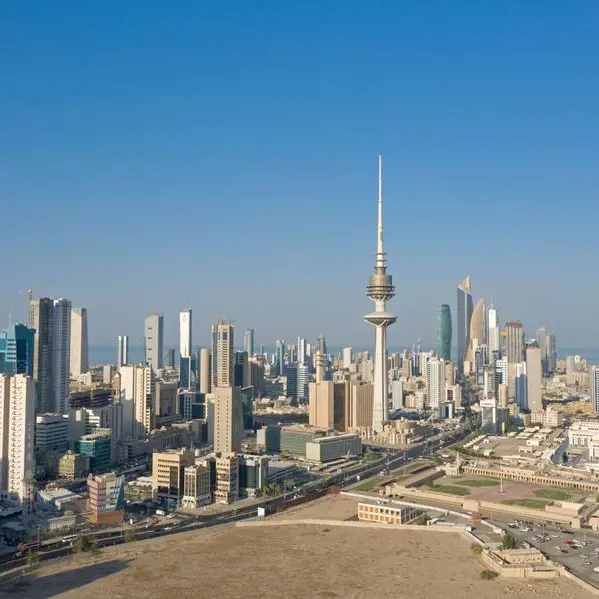PHOTO
RIYADH — The Saudi Ministry of Finance announced on Monday the Pre-Budget Statement for Fiscal Year 2025, which estimates total expenditures will reach SR 1,285 billion, and total revenues will reach SR 1,184 billion, recording a deficit of SR101 billion. The deficit represents 2.3 percent of the Gross Domestic Product (GDP).
The statement noted that the government will continue increasing strategic transformational spending to achieve economic diversification and sustainable growth. According to the statement, total revenues for the financial year of 2025 are estimated to reach about SR 1,184 billion, reaching SR 1,289 billion in 2027. Total expenditures are estimated to reach SR 1,285 billion, reaching SR 1,429 in 2027.
The statement confirmed that—in light of economic developments in Saudi Arabia, and the implementation of a number of financial and economic initiatives, as well as the adoption of fiscal policies that contribute to enhancing the stability and sustainability of the state budget for FY 2025.
The ministry statement emphasized that the reported GDP growth rates were supported by the growth of non-oil activities, which contributed to the prosperity of promising sectors such as tourism, entertainment, transportation, logistics, and industry. This growth improved the quality of life, empowered the private sector, and reduced the unemployment rate to its lowest levels in history.
This was positively reflected in the expectations of international organizations and credit rating agencies regarding the performance of the Saudi economy. Furthermore, the statement shed light on the most prominent expectations of 2024, including recording a real GDP growth of 0.8 percent in 2024, supported by the growth of non-oil activities, which is estimated to be 3.7 percent. In addition, the recent decrease in interest rates is expected to contribute to increasing demand, which may positively impact economic growth. In addition, the initial expectations indicate that the consumer price index (inflation rate) is expected to reach approximately 1.7 percent by the end of 2024.
Minister of Finance Mohammed Al-Jadaan emphasized the government's continuous promotion of directed spending on essential services for citizens and residents, and the execution of strategic projects focused on enhancing economic growth and achieving sustainable development. He noted that the Saudi economy is expected to record positive growth rates during 2025 and over the medium-term as a result of the continuation of the reforms, strategies, and projects of Saudi Vision 2030. This will continue to contribute to the diversification of the economic base, enhancing the role of the private sector, and growing promising sectors, which supports increasing business opportunities and creating more jobs.
Al-Jadaan clarified that the government adopts a long-term fiscal planning methodology to ensure focus on maintaining strategic transformational spending, which is aimed at achieving economic gains and sustainable growth. He mentioned that public finance is flexible and has the ability to face challenges over the medium- and long-term if needed, while also noting the pivotal role of the Public Investment Fund (PIF) and the National Development Fund (NDF) and its development funds in supporting economic stability.
Al-Jadaan noted that the encouraging forecast for the Saudi economy in 2025 is an extension of the positive developments in its actual performance over recent years. The 2025 Pre-Budget Statement estimates growth in real GDP of 4.6 percent, which reflects the Kingdom's commitment to implement its ambitious strategies and achieve sustainable development, which increases investors' trust and enhances the Saudi economy's position regionally and globally.
The minister explained that, despite the slowdown in global economic growth and ongoing economic challenges and geopolitical tensions, Saudi Arabia has demonstrated the strength of its fiscal position and the flexibility of its economy in the face of challenges, represented by safe levels of government reserves and acceptable levels of public debt, in addition to a flexible spending policy that helps deal with crises that may arise in the future.
Furthermore, Al-Jadaan said that the government is working to continue borrowing, according to the approved annual borrowing plan, to finance the expected budget deficit and to repay the debt principal due in FY 2025. In addition, the government will be searching for market opportunities to implement financing activities, including alternative government financing. He noted that it is expected that the volume of the public debt portfolio is expected to increase in a deliberate manner to ensure debt sustainability, as a result of the expansion in spending to accelerate the pace of implementing some programs and projects that enable achievement of the goals of Saudi Vision 2030.
The Pre-Budget Statement, which is issued for the seventh consecutive year, is part of the Kingdom's ongoing efforts to deliver more transparency in public finance and enhance fiscal disclosure. It also reflects the government's efforts to complete the implementation of reforms that contributed to strengthening its fiscal position in light of the challenges witnessed in the global economy.
© Copyright 2022 The Saudi Gazette. All Rights Reserved. Provided by SyndiGate Media Inc. (Syndigate.info).





















